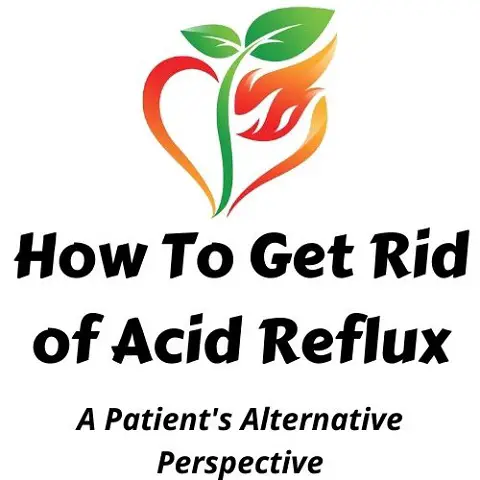Any links on this page that lead to products on Amazon and other companies may be affiliate links and we earn a commission if you make a qualifying purchase. Thanks in advance for your support!
I love yogurt, particularly the Greek type for its creamy texture, and as a bonus, I’ve always had it in mind that it helps my reflux. I decided to see what the science says if anything.
Yogurt is a fermented milk product that contains live bacteria cultures. The beneficial bacteria, known as probiotics, are believed to promote a healthy gut microbiome and improve digestive function. Some studies have suggested that probiotics may also help alleviate symptoms of GERD by reducing inflammation and improving gut motility.
Yogurt can be beneficial for GERD (gastroesophageal reflux disease) as it contains probiotics that can improve digestion and reduce inflammation. However, not all types of yogurt are suitable. It’s best to choose plain, low-fat yogurt and avoid those with added sugars, flavors, and high-fat content, which can aggravate symptoms.
In this article, I will explore different research findings to further answer the question and everything else that you need to know. Continued below:
What is GERD?
GERD, or gastroesophageal reflux disease, is a chronic condition where the stomach acid, digestive enzymes, and sometimes stomach contents back up into the esophagus regularly, causing heartburn symptoms, chest pain, difficulty swallowing, a bitter taste and regurgitation of acid content or sour liquid.
It affects millions of people worldwide and can have a significant impact on their quality of life. Lifestyle modifications, prescription (like proton pump inhibitors and over the counter medications, and sometimes surgery is used to manage GERD.
Yogurt and GERD
There is some evidence to suggest that yogurt may help give relief from heartburn and even alleviate the symptoms of GERD. One study published in the International Journal of Food Sciences and Nutrition found that consuming yogurt reduced the frequency of acid reflux episodes in people with GERD.
The beneficial effects of yogurt on GERD may be due to its probiotic content. Probiotics are live bacteria that promote a healthy gut microbiome, which in turn can reduce inflammation and improve digestive health.
Another study found that probiotics can help alleviate GERD symptoms. The researchers conducted a meta-analysis of 16 randomized controlled trials and found that probiotics significantly reduced heartburn and regurgitation symptoms compared to a placebo. The study authors noted that further research is needed to determine the optimal probiotic strain and dosage for GERD treatment.
In addition to probiotics, yogurt may also help alleviate GERD symptoms, particularly LPR reflux, due to its relatively low acidity. Yogurt’s low acidity level means it is less likely to trigger acid reflux compared to higher-acidic foods like carbonated drinks or tomatoes. Some people with GERD find that consuming low-acidic, or alkaline foods can help reduce symptoms.
In addition to its effects on the body’s metabolism, it has a mechanical cooling effect on the digestive tract, particularly frozen yogurt.

In addition to its effects on the body’s metabolism, it has a mechanical cooling effect on the digestive tract, particularly frozen yogurt.
image credit Martin Hearn
While yogurt may help alleviate GERD symptoms, it is important to note that dietary changes alone may not be sufficient to manage this condition. In some cases, medication or other treatment options may be necessary. It is also important to consult with a health expert before making any significant changes to your diet or treatment plan.
It is also important to note that not all yogurt products are created equal. Some yogurts contain a high sugar content or artificial flavors, which can exacerbate GERD symptoms. It is best to choose plain, unsweetened yogurt that does not contain added ingredients.
Which Yogurt Is Best for Acid Reflux
The best yogurt for acid reflux is one that is low in fat, sugar, and lactose, and high in probiotics. Fatty foods are often associated with reflux, as are spicy foods, though individuals often react differently to different spices, such as cinnamon.
Probiotics are beneficial bacteria that promote digestive health and reduce inflammation in the gut. They can also help keep the digestive system functioning properly and prevent acid reflux symptoms. Some of the yogurt types that have probiotics include the following:
Greek Yogurt
Greek yogurt is a popular type of yogurt that is high in protein and low in fat. You can make it by straining regular yogurt to remove the whey, which gives it a thicker, creamier texture.
It also has fewer carbohydrates and lactose than regular yogurt, which makes it easier to digest for people with lactose intolerance or acid reflux.
Greek yogurt contains probiotics that can help reduce inflammation in the gut and promote the growth of healthy bacteria.
Kefir
Kefir is a fermented dairy product that is similar to yogurt but has a thinner consistency. It is made by adding kefir grains to milk, which contain a mixture of bacteria and yeast that ferment the milk.
It contains a higher concentration of probiotics than yogurt, which makes it an excellent choice for people with acid reflux.
Kefir has been shown to reduce inflammation in the gut and improve digestive health. It also contains compounds that can help soothe the esophagus and reduce acid reflux symptoms. It is also low in lactose, which makes it a suitable option for people with lactose intolerance.
Plant-Based Yogurt
Plant-based yogurts are made from non-dairy sources such as coconut, soy, almond, oat milk or other dairy alternatives. These yogurts are an excellent choice for lactose intolerant or people allergic to dairy products.
They can also be beneficial for people with acid reflux since they are lower in fat and may contain probiotics.
Some plant-based yogurts are fortified with calcium and vitamin D, which are essential nutrients for bone health. However, it is important to check the label for added sugars since some plant-based yogurts may contain high amounts of sugar.
Is strawberry yogurt good for acid reflux?
It depends on the individual. Some people may find that strawberry yogurt worsens their acid reflux symptoms due to the higher sugar content often found in fruit yogurts – you’re often better to buy s good plain yogurt and add your own fruit.
It’s best to experiment and see how your body reacts to it.
When is the best time to eat yogurt for acid reflux?
There is no specific time that is universally considered the best for eating yogurt to help with acid reflux. However, consuming it after meals or as a snack between meals may be helpful, as it can neutralize stomach acid and provide relief.
Final thoughts
While yogurt may be a good choice for some people with GERD, it is important to listen to your body and pay attention to how different foods and beverages affect your symptoms. If you are unsure whether yogurt is a good choice for you, it is a good idea to consult your doctor for personalized recommendations based on your individual needs and health status.
Sources
- Misra, S., Mohanty, D., & Mohapatra, S. (2019). Applications of probiotics as a functional ingredient in food and gut health. Journal of Food and Nutrition Research, 7(3), 213-223.
- Cheng, J., & Ouwehand, A. C. (2020). Gastroesophageal Reflux Disease and Probiotics: A Systematic Review. Nutrients, 12(1), 132. https://doi.org/10.3390/nu12010132
- Heidarzadeh-Esfahani, N., Soleimani, D., Hajiahmadi, S., Moradi, S., Heidarzadeh, N., & Nachvak, S. M. (2021). Dietary Intake in Relation to the Risk of Reflux Disease: A Systematic Review. Preventive nutrition and food science, 26(4), 367–379. https://doi.org/10.3746/pnf.2021.26.4.367
- Zhang, M., Hou, Z. K., Huang, Z. B., Chen, X. L., & Liu, F. B. (2021). Dietary and Lifestyle Factors Related to Gastroesophageal Reflux Disease: A Systematic Review. Therapeutics and clinical risk management, 17, 305–323. https://doi.org/10.2147/TCRM.S296680
- Hemarajata, P., & Versalovic, J. (2013). Effects of probiotics on gut microbiota: mechanisms of intestinal immunomodulation and neuromodulation. Therapeutic advances in gastroenterology, 6(1), 39–51. https://doi.org/10.1177/1756283X12459294
